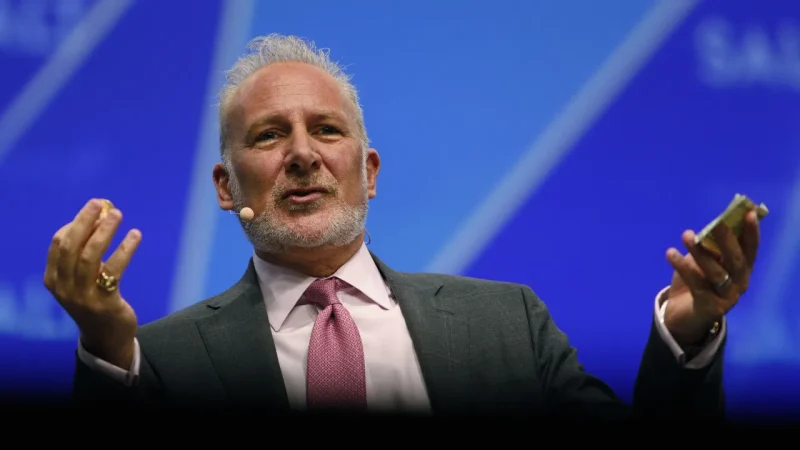Peter Schiff, a prominent critic of Bitcoin, has recently suggested that the U.S. government might soon sell all of its Bitcoin holdings. This speculation follows a significant transfer of $2 billion worth of Bitcoin, previously seized from the Silk Road marketplace, into two new government-controlled wallets. The move has sparked discussions and debates within the cryptocurrency community.
Context Behind the Bitcoin Transfer
The transfer occurred shortly after former President Donald Trump proposed using Bitcoin as a strategic reserve at the Bitcoin Conference 2024. Trump’s suggestion marked a potential shift in U.S. policy towards cryptocurrencies, hinting at a possible strategic role for Bitcoin in the nation’s financial future. Schiff interprets the government’s transfer as a reaction to Trump’s proposal, speculating that the Biden administration may want to sell the Bitcoin holdings before Trump could potentially use them as a reserve if he returns to office. According to Schiff, Trump’s reserve plan might have been kept secret to avoid alerting the current administration.
Alternative Explanations
However, there are other interpretations of the government’s actions. Bloomberg analyst James Seyffart has suggested that the Bitcoin transfer might be linked to a deal between the U.S. Marshals Service and Coinbase, a leading cryptocurrency exchange. This theory adds another dimension to the ongoing debate about the relationship between government actions and the cryptocurrency market.
As the situation unfolds, the future of the U.S. government’s Bitcoin holdings remains uncertain. Whether the government intends to liquidate its assets or use them as part of a broader strategic plan will be closely watched by both skeptics and supporters of cryptocurrency. Schiff’s comments underscore the complexity of the relationship between government policy and the evolving crypto landscape.
